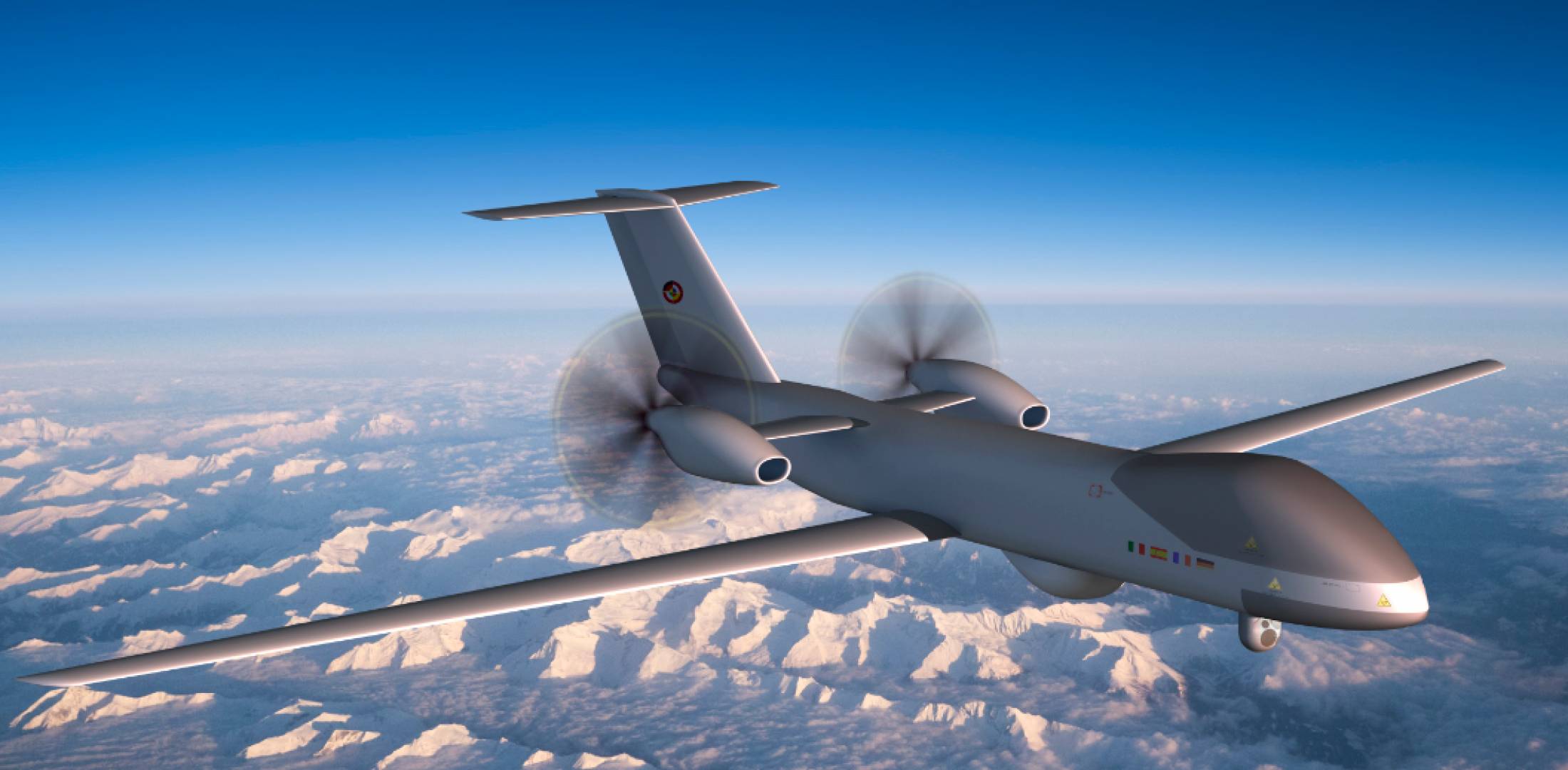In its most recent annual equipment report, Germany said that the ongoing disagreement between Airbus Defence & Space (Airbus D&S) and its French counterpart, Dassault Aviation, is responsible for delays in the Eurodrone program.
The German defense ministry revealed that a critical deadline for the preliminary design review (PDR) in September 2023 was missed, citing persistent coordination issues between the German main contractor, Airbus D&S, and the French subcontractor, Dassault.
The report emphasizes that addressing ongoing coordination problems is pivotal to averting further setbacks in the PDR phase.
If not resolved promptly, these issues could also impact the critical design review (CDR) milestone, a significant contractual point scheduled for September this year, according to the German defense ministry.
Airbus D&S, the main contractor, is reportedly committed to comprehensively and swiftly resolving the challenges posed by Dassault’s work.
The ministry acknowledges the contractor’s efforts to rectify existing issues, but the complexity raises concerns about potential consequences for the Eurodrone program’s timeline.
Beyond the inter-contractor challenges, the Bundeswehr report highlights technological issues adversely affecting the PDR schedule. Not all subsystems possess the required technological maturity to initiate the formal PDR process, contributing to the overall delays.

The Eurodrone program is a collaborative effort led by Germany (Airbus DS), with participation from France (Dassault), Italy (Leonardo), and Spain (Airbus DS).
The work on the Eurodrone project commenced in 2022 after Airbus D&S was awarded a contract by the procurement agency OCCAR.
Designed as a European medium-altitude long-endurance (MALE) remotely piloted air system (RPAS), the 11-metric-ton unmanned aircraft system (UAS) seeks to establish and maintain European UAS development capabilities amid increasing reliance on US and Israeli platforms by European governments.
The German armament report indicates that work on the prototype air vehicle is set to commence in 2024, with the maiden flight scheduled for January 2027 and deliveries expected in 2030.
The program encompasses 20 systems collectively ordered by partner nations—France, Germany, Italy, and Spain—each featuring three air vehicles.
With seven systems, Germany has secured the Eurodrone program’s final assembly line as the most significant customer. Dassault’s work share in the program includes the development of safe flight and landing systems, as well as communication maintenance elements.
Challenges Akin To 6th-Gen FCAS Program?
While details surrounding the issues remain undisclosed, parallels can be drawn with the Future Combat Air System (FCAS), where a disagreement between Airbus and Dassault over flight control system development for the crewed combat aircraft led to a significant setback.
The disagreement between the French and German companies resulted in a yearlong delay in developing the FCAS demonstrator, with the deadlock being resolved in November 2022.
The primary partner nations have committed 3.2 billion euros for Phase 1B, spanning three and a half years, with an optional additional investment of five billion euros for Phase 2.
The FCAS is pivotal for European strategic autonomy, fostering stronger political and military ties between significant economies and bolstering the European aerospace industry.
However, various reports suggest blame may lie with Dassault, as the French company reportedly resisted compromise in a prolonged dispute over intellectual property rights.
Conversely, others argue that Airbus sought a more significant workshare in the Dassault-led project, advocating for “equal footing” with the French company.
Dassault’s CEO, Eric Trappier, previously expressed concerns about protecting the company’s intellectual property, emphasizing Dassault’s extensive experience, spanning over 70 years, in supplying fighter jets compared to Airbus, which has a relatively recent involvement in defense-related activities.
Trappier also voiced regret over including Airbus’s Spanish branch in the program, creating an imbalance in negotiations.
It is essential to note that this FCAS should not be confused with another FCAS led by the UK, supported by Italy and Japan, with Tempest as the combat aircraft component. Simultaneously, the US pursues its FCAS through the Next-Generation Air Dominance (NGAD) project.
Reports last year emerged about Germany’s contemplation of leaving the FCAS project with France and Spain, favoring joining the British-led Tempest program, renamed as the Global Combat Air Programme (GCAP), due to alleged preferential treatment given to French aerospace companies.
However, Berlin later reaffirmed its commitment to the joint endeavor with France and Spain. Nevertheless, the ability of French and German companies to collaborate without causing delays remains uncertain, particularly as the UK-led next-generation fighter jet project advances swiftly.
- Contact the author at ashishmichel(at)gmail.com
- Follow EurAsian Times on Google News